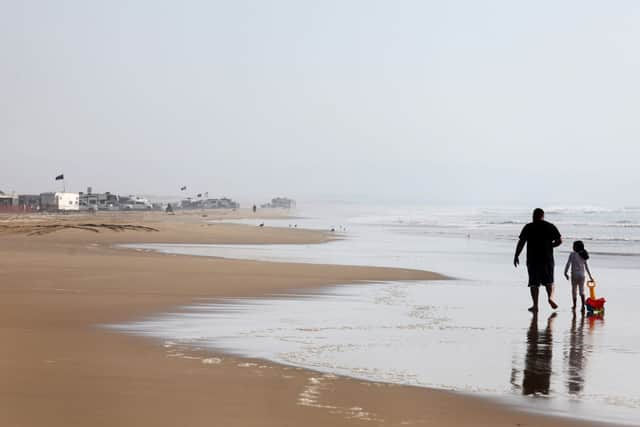UK one of first to sign new ocean treaty - as environmentalists fear net zero u-turn already undermining it
The government is being urged to roll up its sleeves and get to work fulfilling a new promise - to help protect ocean ecosystems as they bounce back from human destruction before it's too late.
The UK was one of 67 governments to sign the high seas treaty at the United Nations General Assembly when it first opened for signatures on Wednesday (20 September), with another eight joining them on Thursday. However, environmental advocates have expressed concern the government is already putting its new obligation at risk, by watering down climate policies the very same day.
Advertisement
Advertisement
Fellow first-day signatories included Ireland, the US, representatives from the European Union, China, Australia, and New Zealand. But despite receiving more than the 60 signatures necessary, the countries each need to ratify the treaty into law for it to become legally binding.
The treaty will give them the power to establish new marine sanctuaries, and Reuters reports European Environment Commissioner Virginijus Sinkevičius described it as the "constitution for the ocean".


"With the signature of the High Seas Treaty, we can safeguard the ocean from human pressures, and get closer to our objective of protecting at least 30% of the planet by 2030," he said.
Currently, less than 1% of the high seas are protected, but to reach the United Nations' agreed-upon biodiversity target of protecting 30% of the world's oceans by 2030, around 11 million square kilometres of ocean must be protected every year - more than the surface of the UK and Canada combined.
Advertisement
Advertisement
A week before the treaty opened for signing, Greenpeace launched a new video campaign - featuring the voice talents of Jane Fonda and Simon Pegg - to urge governments to get to work ratifying the treaty - and making plans to establish new marine sanctuaries - as soon as possible.
Greenpeace UK's head of oceans Ariana Densham said the UK being among the first wave of governments to sign the oceans treaty was an important sign of leadership - on what was otherwise a dark day for its environmental reputation, as Rishi Sunak announced a series of net zero policy rowbacks.
"[Wednesday's] signing should fire the starting gun for the UK to ratify the treaty into national law as soon as possible, and to press ahead with creating sanctuaries on the high seas," Ms Densham said. "The stakes could hardly be higher as our oceans face threats from all sides: from industrial fishing, to deep sea mining, to unprecedented ocean heat waves."
But she said while this leadership from the UK on the world stage was welcome, ocean protection starts at home. "That means not watering down domestic policies that will allow us to reach our net zero commitment and limit warming and acidification of the oceans.
Advertisement
Advertisement
"It also means immediately banning industrial fishing from marine protected areas and supporting a ban on deep sea mining before this destructive new industry can gain a foothold.”
The sentiment was shared by Lissa Batey, head of marine conservation at The Wildlife Trusts. “It is shocking that the UK Government appears happy to sign up to international agreements one minute, and completely undermine them the next.
“While we welcome the signing of the UN High Seas Treaty – which is crucial to achieve the UK’s pledge to protect 30% of seas by 2030 – we are concerned that today’s climate announcements put this commitment at risk," she said.
“Despite signing the treaty, the UK risks being left adrift if we delay or weaken ambitions to meet existing net-zero targets. The UK government must stay on course and live up to its commitments.”
